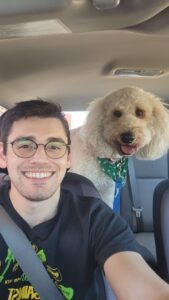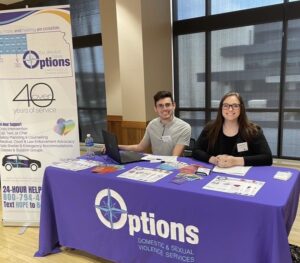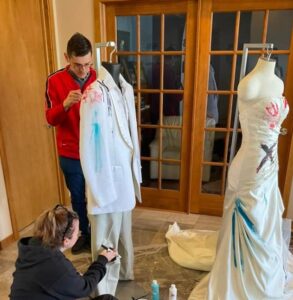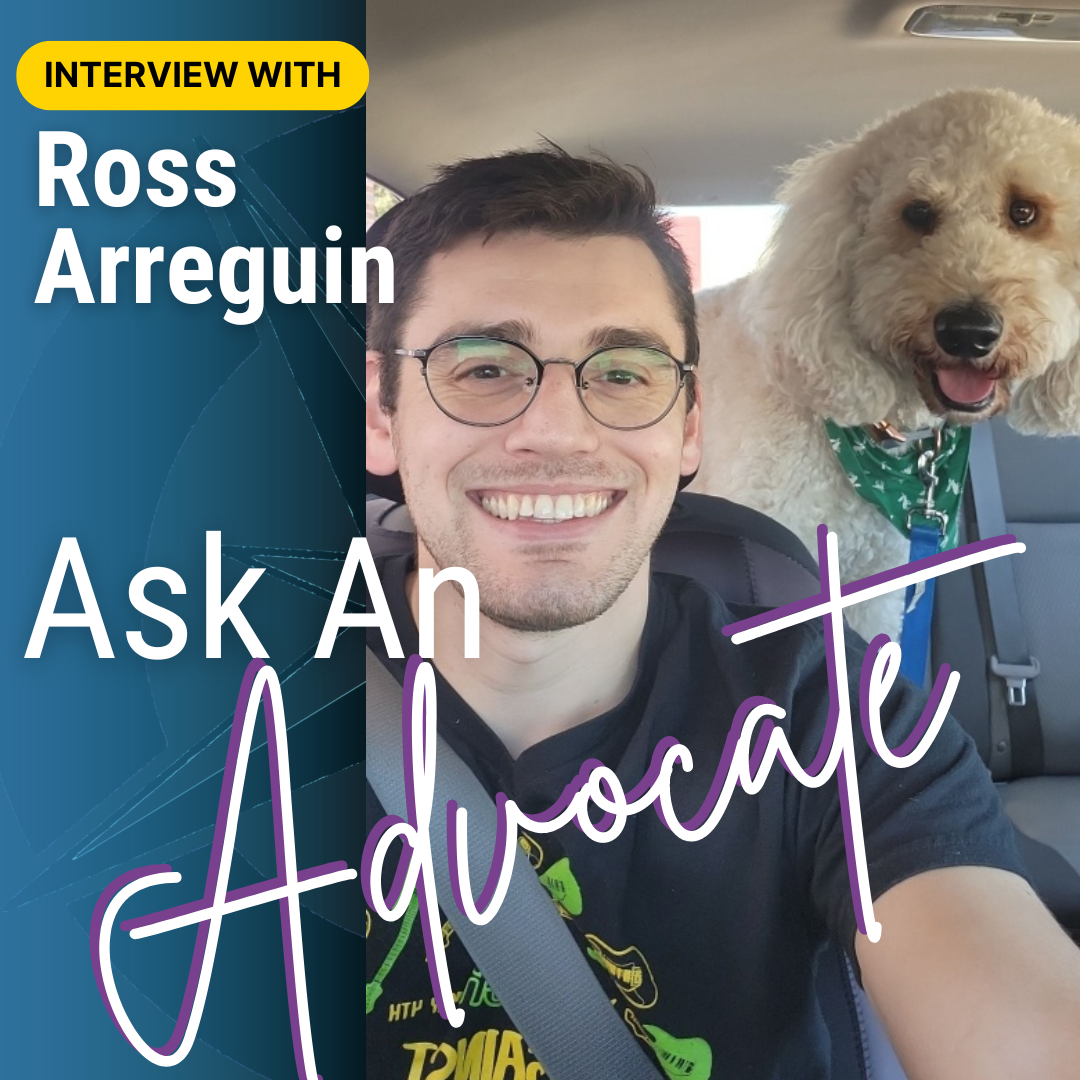October is Domestic Violence Awareness Month, and at Options, we’re excited to highlight some of the amazing advocates who work directly with clients to ensure their safety and healing. Our ‘Ask An Advocate’ series showcases these incredible individuals.
This feature spotlights Ross Arreguin, our Mobile Advocate at Options Domestic and Sexual Violence Services. With nearly 3 years of experience, Ross began as an Overnight Shelter Advocate, giving him valuable insight into both shelter life and the challenges faced by community-based survivors.
Can you describe your primary responsibilities as an advocate?
“As the Community Advocate that’s based in Hays, I help any walk-ins and help monitor all of our hotlines. My other main duty is to travel to our eastern eight counties. While traveling to these counties, I make sure all our materials are up to date, provide a physical presence in these rural counties, and build/maintain our community relationships within the rural counties.”
What is unique about your role?
“The travel aspect of my job allows me to connect with other organizations and agencies involving victim advocacy and services. I have worked alongside the KBI (Kansas Bureau of Investigation) and CAC (Child Advocacy Center) in cases in the rural communities.”
What do you believe is the most important aspect of your job as an advocate?
“Being informed and patient. We’re usually the ones that survivors lean on in their most desperate times, so knowing how to help a survivor deescalate and having the knowledge to help them in that moment helps them heal more effectively.”
What are some of the key challenges you face in your role, and how do you address them?
“Mental health: some survivors have developed some mental health conditions (PTSD, anger issues, depression, suicidal thoughts, etc.) and I’m not qualified to handle them. The best that I’m able to due to is attempt to deescalate and refer them to those who can help them.
Financial Resources: when a survivor qualifies for the extremely limited financial support that Options can provide, referring to other organizations is what I have to do. However, those resources are either limited to certain locations, also have criteria to meet, or are out of funding.”
Can you share a memorable success story (while maintaining confidentiality) that highlights the impact of the work you do?
“I spoke with a client as a follow-up after the weekend, things had escalated by the time I was able to get a hold of them. After hearing the updates, I insisted that they go to the hospital for a strangulation examination. After a bad experience in their community, they came to HaysMed for a much better experience. We remained in touch, and when the virtual hearing came for the PFA, it was a quick and satisfying experience for the client.”
 What has been your favorite training or professional development program you’ve attended/received since working with Options? What did you learn?
What has been your favorite training or professional development program you’ve attended/received since working with Options? What did you learn?
“The Kansas Crime Victims’ Rights Conference, it’s a great networking event of similar agencies, lawyers, nurses, law enforcement, and social workers. I’ve learned how provide the needed support to victims in the court system and how to be a better organization by not siloing information.”
How do you practice self-care and prevent burnout, given the emotional intensity of the work?
“Work remains at work. If a client of mine comes in and it isn’t an emergency, I ask them if we can schedule an appointment later if I am busy with other matters. I utilize my vacation time almost monthly to ensure plenty of rest and breaks from work.”
How do you build trust and rapport with survivors?
“Being patient and down to business. Due to their experience, being grounded and keeping them on track helps them keep moving forward. This means deescalating them when they spiral, keep them focus on the tasks on hand, and being patient with them with the less time sensitive matters.”
How do you measure success? What does a successful day or client case look like to you?
“If they take what I’ve provided with them. A lot of my work is referrals, so if they take them with them, I know they have the information to decide a path forward. I don’t know if they will reach out the referrals, but they have the information to do so, and that’s all that I can do.”
What kind of changes or improvements would you like to see in the way society addresses domestic and sexual violence?
“Believe the survivors when they come forward. People aren’t lying about this when they are able to give the details. However, a lot of people or communities do not believe that this is something ‘that happens in their community’ or the abuser ‘just doesn’t act like that.’”
What advice would you give to someone who wants to pursue a career in advocacy work for domestic and sexual violence?
“Know how to time manage and be sure you know how to take care of your mental and physical health.”
How has working at the agency impacted your personal views or perspectives on domestic and sexual violence (or stalking, or human trafficking)?
“It has provided me the knowledge of how to help those in these situations. I’ve personally used this to help provide a close relationship of mine the tools for them to heal from their personal domestic violent situation.”
 What keeps you motivated and passionate about your work, even when it becomes difficult?
What keeps you motivated and passionate about your work, even when it becomes difficult?
“I enjoy helping people, and my peers are what keep me motivated to stay.”
Is there anything else you’d like to add?
“Advocacy is tough, but it’s rewarding when there are successes. However, due to the stressful nature of the job, boundaries are the biggest thing to enforce with clients and peers as that’ll keep you sane.”
If you need any additional information, have a question, or a concern, feel free to reach out to Options at our 24-hour toll-free helpline 800-794-4624. You can also reach an advocate via text by texting HOPE to 847411 or click 24-Hour Chat with Options.
This grant project is supported by the State General Fund for Domestic Violence and Sexual Assault, sub-grant number 24-SGF-07, as administered by the Kansas Governor’s Grants Program. The opinions, findings, conclusions or recommendations expressed in this publication are those of the author(s) and do not necessarily reflect the views of the Office of Kansas Governor.


